The Subtle Signs That Your Pet Is Actually Jealous and How to Handle It
It’s easy to laugh when your cat swats at you for petting someone else or when your dog squeezes between you and a new guest, but those antics can reveal something deeper. Pets may not talk, yet they have plenty of ways to show their feelings, including jealousy. Recognizing those signs early helps restore balance, keep routines calm, and reassure them that their place in your life is still secure.
Incessant Shadowing and Closeness

Credit: Getty Images
If your pet has turned into your four-legged shadow, following you from room to room and refusing to let you out of sight, it may be a silent protest. This clingy behavior often appears when they feel their bond is threatened or diluted. Building in small but steady moments of focused attention, like a morning walk or a brief play break, can remind them they’re still valued without encouraging dependency.
Performing Tricks for No Reason
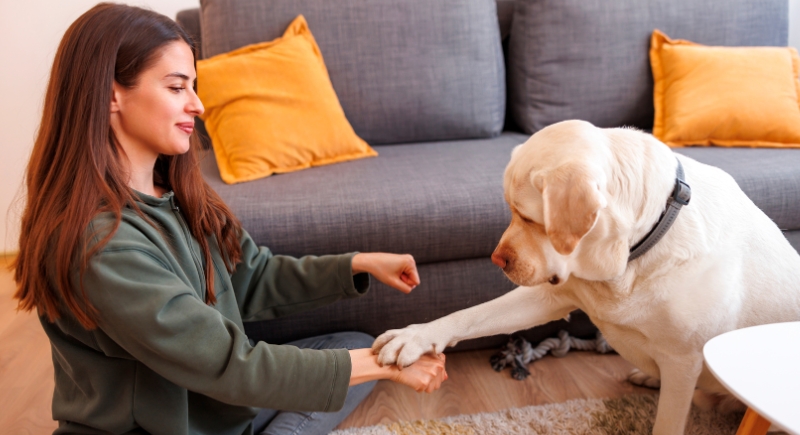
Credit: Getty Images
When they start offering tricks out of nowhere, it’s usually a sign they’re craving recognition. Put that spontaneous energy to good use. Schedule short training or play sessions where your pet can earn praise and treats for following cues rather than improvising them. Turning that need into focused activity transforms jealousy into engagement.
Pushing Between You and Others
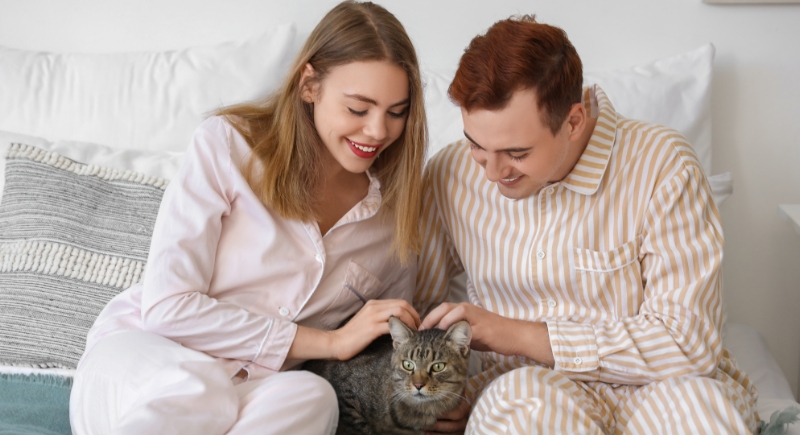
Credit: pixelshot
When your dog wedges itself between you and a visiting friend or your cat hops onto your lap the moment you start hugging someone, they’re making a clear statement. The physical interruption is an attempt to reclaim your attention. Some dogs even do this when their owners interact with stuffed “rival” dogs. Staying composed and redirecting them gently helps them learn that sharing your affection is safe and normal.
Overt Resource Guarding
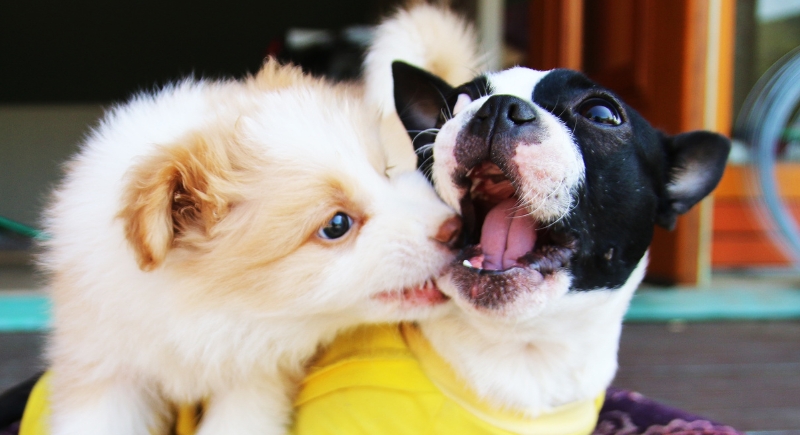
Credit: pixabay
Growling over toys, blocking access to food, or refusing to share the couch might look like dominance, but it often stems from jealousy. Pets worry their essentials are at risk. The key is to avoid confrontation. Give each pet separate mealtimes or play areas, and celebrate calm cooperation.
Unprovoked Aggression
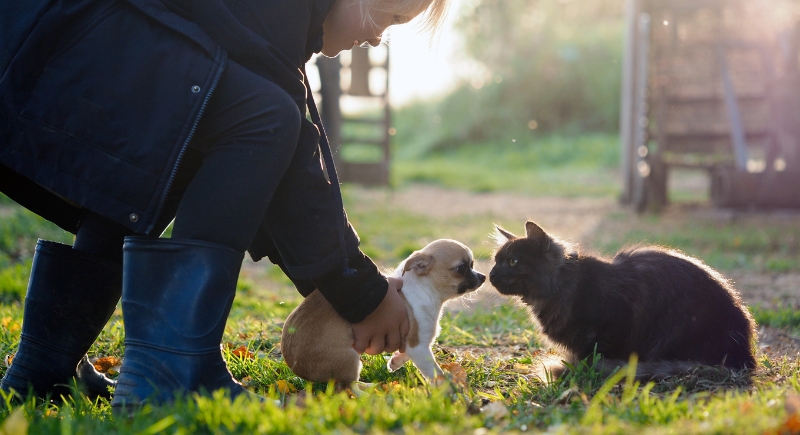
Credit: Getty Images
Start by creating calm, predictable interactions when introducing your pet to new people or animals. Keep greetings short, neutral, and full of reassurance. When pets sense steadiness, their defensiveness often fades. If you notice sudden snapping or hissing, remember, it’s insecurity surfacing.
Sudden Destruction or Chewing
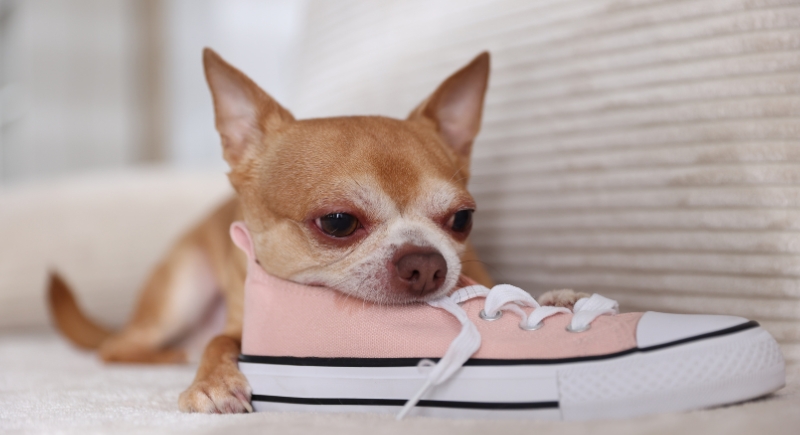
Credit: Africa Images
If your once well-behaved companion has started destroying pillows or gnawing furniture legs, jealousy may be fueling the chaos. When pets can’t express frustration verbally, they redirect it through chewing or digging. Offering puzzle toys, more walks, and play sessions helps release that bottled-up energy. Keeping them engaged not only prevents damage but also eases emotional tension.
House Accidents or Regression

Credit: pixelshot
Even the most well-trained pet can suddenly forget the rules when jealousy sneaks in. Emotional tension can throw their normal routines off balance, which may lead to unexpected indoor messes that seem out of character. Instead of scolding, focus on stability: keep walks, meals, and bathroom breaks on schedule, and offer calm encouragement when they get it right.
Over-Grooming or Self-Soothing Habits
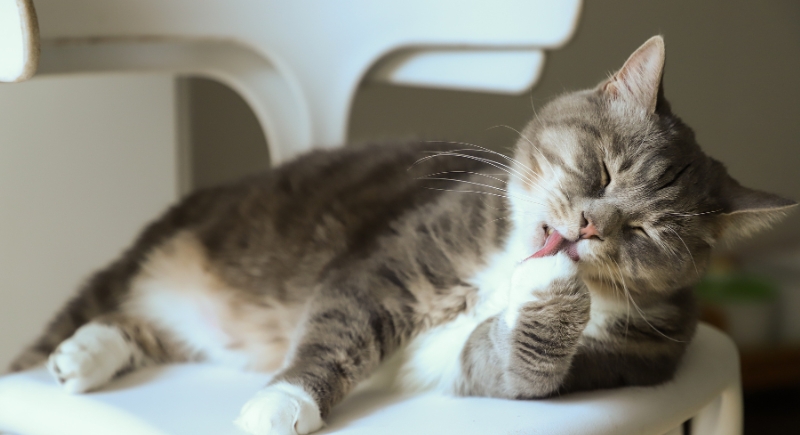
Credit: pexels
Sometimes jealousy shows up as a pattern. A cat that licks one spot raw or a dog that scratches more than usual may be using grooming as emotional relief. It’s their version of stress management. Provide outlets like puzzle toys, scratching posts, or extra playtime that will help redirect that energy. If the behavior becomes obsessive or causes skin irritation, a vet can help uncover any underlying issues.
Frequent Whining, Whimpering, or Vocalizing

Credit: Getty Images
Give your pet consistent attention throughout the day before the noise begins. A few minutes of play or training between your other activities can prevent jealous vocal outbursts later. When whining or barking does happen, resist the instinct to respond right away; silence teaches patience.
Withdrawing or Leaving the Room
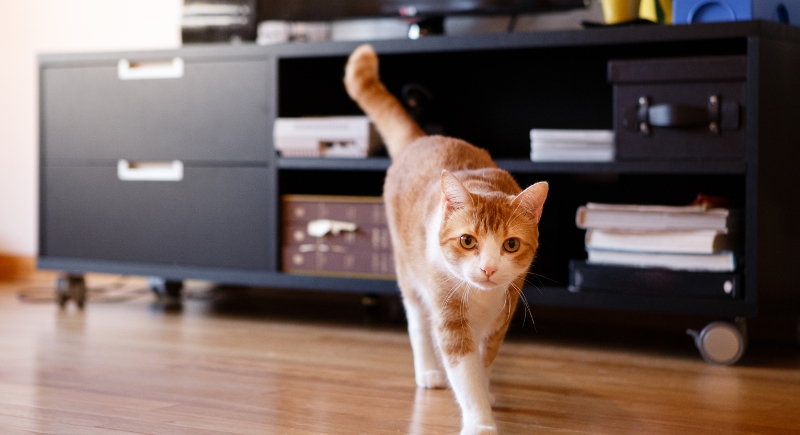
Credit: Getty Images
Some pets handle envy quietly by retreating or turning their backs. While this might seem polite, it’s a sign of emotional distance. Let them have space without chasing them, but welcome them warmly when they rejoin you. This balanced response reassures them that your affection remains steady even when they step away.